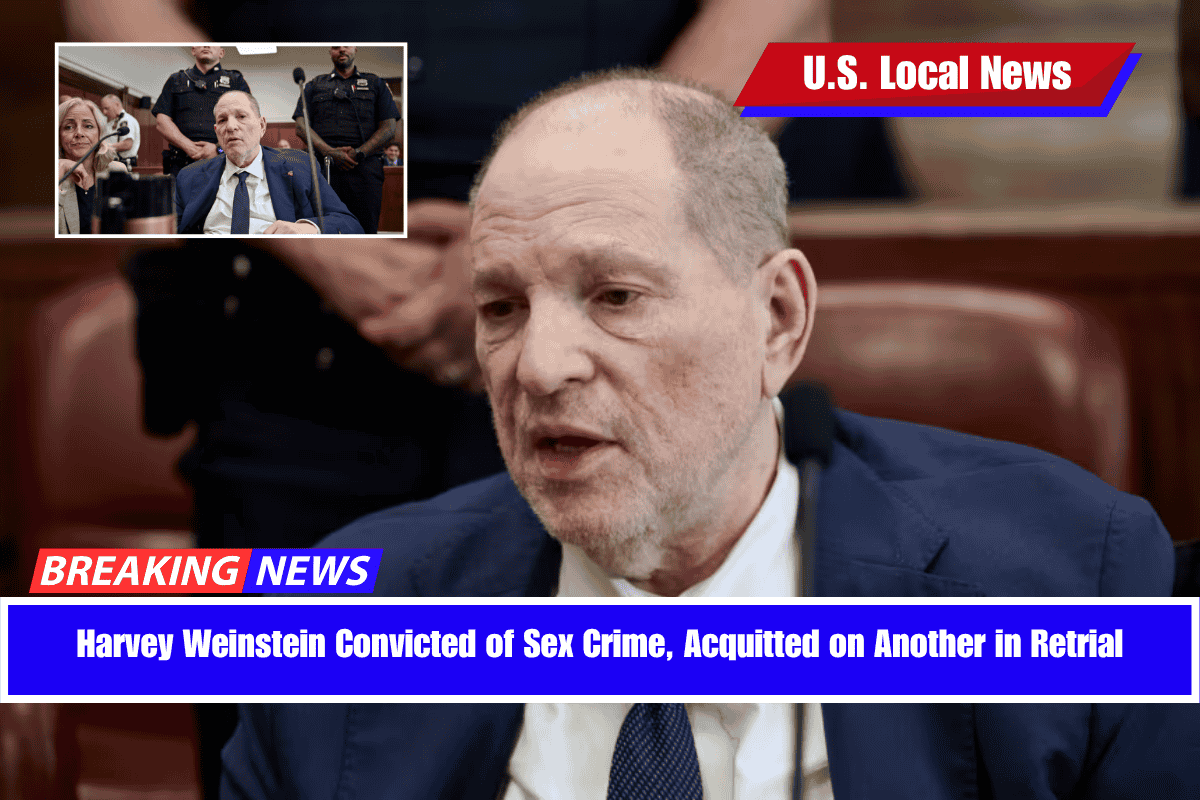Harvey Weinstein, the former Hollywood mogul whose career crumbled amidst allegations of sexual assault, has been convicted of one of the most serious charges in his retrial, but acquitted on another.
The jury, still deliberating on a third charge, delivered a mixed verdict that was seen as a partial victory for both the prosecution and the defense.
The retrial stems from a case originally tried five years ago, which ended with a conviction but was overturned in 2024. This retrial saw Weinstein convicted of forcibly subjecting Miriam Haley, a former production assistant, to a criminal sex act in 2006.
However, Weinstein was acquitted of a separate charge involving Kaja Sokola, a former model who accused him of forcing oral sex on her in 2006. Jurors were also still deliberating a charge involving a 2013 rape allegation by Jessica Mann, a hairstylist and actor, which carries a lesser penalty than the other charges.
Tensions in the Jury Room
The deliberations took a dramatic turn on Wednesday when the jury foreperson expressed concerns about being bullied by fellow jurors, which led to a tense discussion in the courtroom.
Weinstein’s defense team argued that the foreperson felt unsafe, and there were calls for a mistrial, although the judge ultimately decided to continue with the deliberations. This episode highlighted the emotional strain the jury faced during the high-profile case.
Weinstein, who did not testify in his defense, reacted strongly to the trial proceedings, even requesting that the judge declare the trial unfair and call an end to the case. “My life is on the line, and you know what? It’s not fair,” he said in a rare courtroom address, urging for the trial to be halted.
His words reflect the personal toll the case had taken on him, given his status as one of Hollywood’s most influential figures before the #MeToo movement exposed his alleged misconduct.
The Rise and Fall of Harvey Weinstein
Once one of Hollywood’s most powerful figures, Weinstein was the co-founder of Miramax and The Weinstein Company, which produced or distributed numerous critically acclaimed films, including Shakespeare in Love, The English Patient, and The Artist. His influence extended beyond the silver screen into politics, where he was also known for his substantial donations to Democratic candidates.
However, the tide turned in 2015 when accusations against him started to surface, leading to a series of investigative reports by The New York Times and The New Yorker in 2017.
The resulting revelations about decades of sexual harassment and assault sparked the #MeToo movement, which brought global attention to issues of sexual misconduct in the workplace, particularly within the entertainment industry.
In the aftermath, Weinstein was arrested and convicted on charges in both New York and California. His California conviction remains intact, though he is appealing it. Meanwhile, his New York conviction was overturned last year by the state’s highest court, prompting the retrial now in progress.
The Accusations and Defense
During the retrial, Weinstein’s accusers testified about their experiences, each describing how they felt trapped by Weinstein’s power and influence. They claimed that Weinstein used his status in Hollywood to lure women into meetings where he would sexually assault them.
The women testified that they kept in contact with Weinstein afterward, sometimes for career-related reasons, which was part of the defense’s argument that their interactions with Weinstein were consensual.
Weinstein’s legal team painted his accusers as ambitious women who willingly engaged with him to further their careers, only to later label their encounters as crimes for financial gain and to align with the #MeToo movement.
The case was filled with personal testimony from the accusers, including Miriam Haley, who used harsh words against Weinstein from the witness stand, and Jessica Mann, who pointed at him with indignation as she walked past him in court. These emotional moments further underscored the gravity of the accusations against Weinstein.
The #MeToo Impact
The trial once again placed Weinstein in the spotlight and highlighted the continued relevance of the #MeToo movement, which has brought greater accountability to powerful men in industries like entertainment.
Weinstein’s case was among the first high-profile cases to publicly address issues of sexual assault and harassment, leading to the downfall of numerous prominent figures across various fields.
Despite the turmoil surrounding the trial, the case against Weinstein continues to send a strong message about the importance of holding powerful individuals accountable for their actions.
For many of Weinstein’s accusers, the legal battles have been both emotionally and psychologically taxing, but they have also provided a sense of justice in a system that has long been dismissive of their complaints.











Leave a Reply